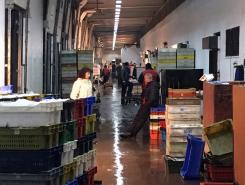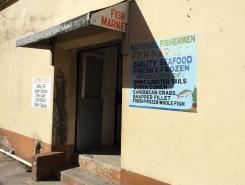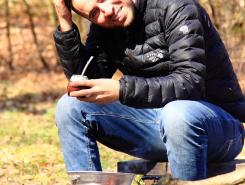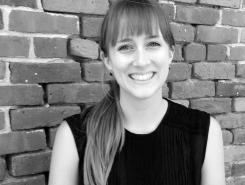Kaitlyn has been working in global conservation since 2010, supporting partnerships, coordinating communications, and managing programs. During her five years with the Wildlife Conservation Society’s Global Marine Program she supported field programs in a number of countries, including Belize, Gabon, Madagascar, and Fiji. She was also instrumental in the development of new field programs and conservation initiatives, including a global sharks and rays program and a marine protected areas fund. Kaitlyn received her BA in Global Environmental Studies in Geography and MA in Environmental Science and Policy from Clark University, in Worcester, Massachusetts.
Q: How did you find your way into marine issues?



